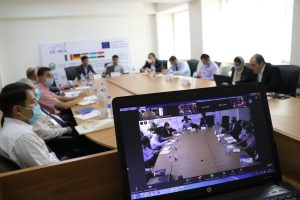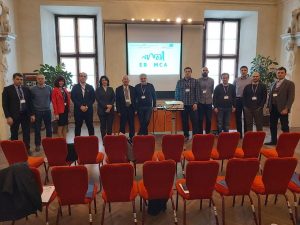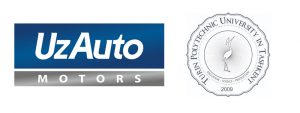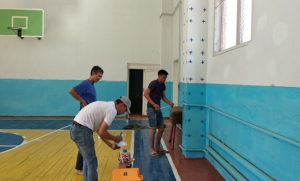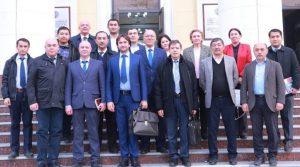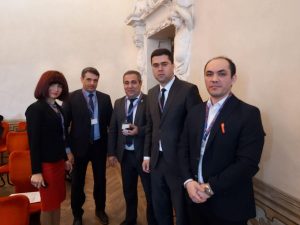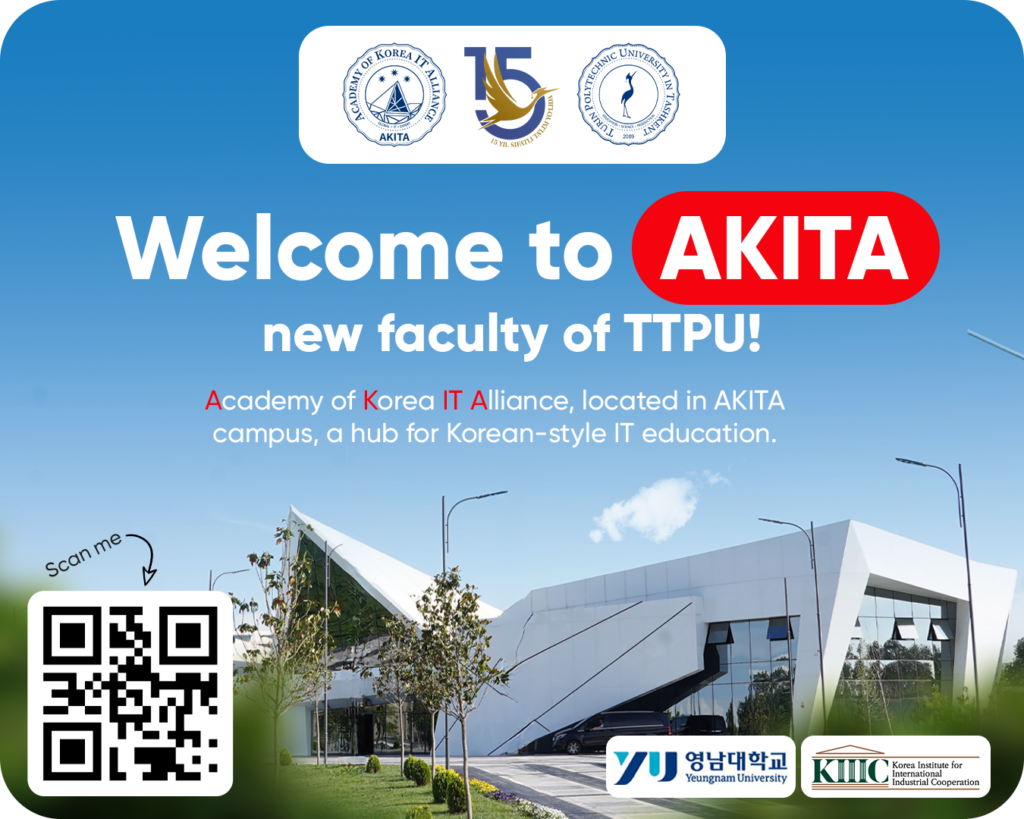TTPU Makes Differences on Preserving Objects of Cultural Heritages in Uzbekistan
TURIN POLYTECHNIC UNIVERSITY IN TASHKENT SEPTEMBER 17, 2020 TTPU NEWSLETTER Laureate: TTPU Makes Differences on Preserving Objects of Cultural Heritages in Uzbekistan September 17, 2020 By Khasan Khankeldiyev, TTPU’s International Relations Department Local participants of the seminar on preserving objects of the cultural heritages are getting ready to meet their counterparts from Italy, Germany, Croatia and Tajikistan via Zoom platform at TTPU’s conference hall (September 15, 2020). At a seminar on preserving the cultural heritages held at TTPU this week, Laureate of the State Prize of the Republic of Uzbekistan, Abdusafi Rahmonov, said that Turin Polytechnic University makes differences and…
Department of Automatic Control and Computer Engineering
The staff of the “Department of Automatic Control and Computer Engineering”, together with the specialists of the Competence Center of NTI SPPU "New manufacturing technologies" with the support of the program "University Alliance SAP" conducted a training course for teachers of the Turin Polytechnic University in Tashkent (TTPU) under the program “Building business processes of intellectual enterprise”. The course was the first part of a 2-year large-scale curriculum for students and teachers of the university, the purpose of which is to prepare qualified staff for participation in digital transformation projects of “Uzavtosanoat” - the largest holding in Uzbekistan, which includes…
What is a CRM for higher education?
According to the IT research and advisory of IT scholars, a CRM (Customer Relationship Management), is not only the technology but also “a business strategy that has primary objectives of optimizing profitability and revenue, improving customer satisfaction and promoting customer-centric processes.” In other words, a CRM for higher education enables institutions to keep their stakeholder’s information up-to-date by facilitating and tracking every interaction the university has with them across different platforms, no matter where they are in the world. It is designed to help staff by simplifying their workflow and in turn, improving their relationships with students. The outcome? Increased…
Turin Polytechnic University Conducts a Seminar on Preserving the Cultural Heritage Sites this September
February 13, 2020, Turin, Italy, the kick-off meeting of ERAMCA ERASMUS + project. Strategy Forum on need analysis in Environmental Risk Assessment and Mitigation on Cultural Heritage Assets in Central Asia is to be conducted at Turin Polytechnic University in Tashkent on September 15, 2020, within the framework of the ERAMCA Erasmus + project. Keynote speakers, researchers and participants of partner countries are expected to participate in the conference hall of the university or at least meet online in a virtual conference due to the COVID-19 pandemic. If you want to join online webinar, please contact bonu.azizova@gmail.com to get a…
Dear applicants!
Turin Polytechnic University in Tashkent announces a unique opportunity. Students who score more than 70 points in entrance exams can receive sponsorship opportunities from JSC “Uzavtosanoat” and the enterprises included in it, as well as from the University itself. The selection of candidates will take place in 2 stages: Interview with a special commission of the university Interview with the chairman of JSC “Uzavtosanoat” Please note that after graduation, sponsored students will have obligations to work at the enterprise. Also, the main condition for continuous sponsorship is the absence of fails in subjects. All interested applicants, please submit your short…
Turin Polytechnic University and the World Bank for the Safety of Public Schools in the City of Andijan
Turin Polytechnic University students are in a field of study in one of the public schools in the city of Andijan (August 9, 2019). Turin Polytechnic University students and a team of experts assessed the seismic resistance of a number of public schools in the city of Andijan under the World Bank School Safety Project from August 1 to August 14 of 2019. Professors and students from Turin Polytechnic University in Tashkent and experts from the Institute of Mechanics and Seismology participated in field research to collect the necessary information from 9 different buildings and assess the seismic resistance of…
SPACE.COM
SPACE.COM – New Curriculum for Space and Telecommunication Systems (~95 547 EUR) Start: 15-11-2019 – End: 14-11-2022 Project Reference: 609715-EPP-1-2019-1-UZ-EPPKA2-CBHE-JP EU Grant: 998997 EUR Program: Erasmus+ Key Action: Cooperation for innovation and the exchange of good practice section Type: Capacity Building in higher education SPACE.COM is aimed to adapt, modernize and restructure existing curricula in space systems and communication engineering; to develop new certified courses according to the new achievements in the area, the labor market demands and the Bologna Process; to test innovated curricula and to disseminate the results. The planned curricular reform will focus on the content,…
ERAMCA project
Start: 15-01-2020 - End: 14-01-2023 Project Reference: 609574-EPP-1-2019-1-IT-EPPKA2-CBHE-JP EU Grant: 801376 EUR Programme: Erasmus+ Key Action: Cooperation for innovation and the exchange of good practices Action Type: Capacity Building in higher education ERAMCA project introduces in the Partner Countries an interdisciplinary approach to the complex problem of environmental risk assessment and reduction on Cultural Heritage assets in Central Asia. The project starts with an investigation of the local needs in Partner Countries and transforms those requests into a curriculum of a Master (120 ECTS), a digital library where all the teaching materials (e.g. books, hypertexts, video, best practices) related…




